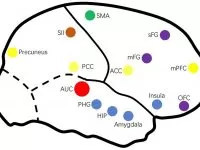
Tinnitus cannot be cured but it can be managed. The first thing to do is see an audiologist and find the best tinnitus and relaxation therapy for you.
The CDC estimates that 15% of the general population, about 50 million people, suffer some form of the condition. It can be acute or chronic, constant or irregular, tonal or pulsatile. Generally, there are two types:
Head or ear noises that are perceivable only to the specific patient. More than 99% of all tinnitus reported tinnitus cases are of the subjective variety.
Head or ear noises that are audible to other people, as well as the patient. These sounds are usually produced by internal functions in the body’s circulatory (blood flow) and somatic (musculoskeletal movement) systems.
Objective tinnitus is very rare, representing less than 1% of total tinnitus cases.
While it is often associated with hearing loss, there are roughly 200 different health disorders that can generate tinnitus as a symptom; such as middle ear obstructions, TMJ (temporomandibular joint) disorders, brain injuries, and as a side effect of prescription medications.
No matter the cause, tinnitus can be debilitating; resulting in anxiety, depression, irritability, poor concentration, and social isolation.
Tinnitus cannot be cured but it can be managed. The first thing to do is see an audiologist. These hearing professionals will be able to correctly measure and evaluate each patient’s tinnitus case.
Once that is done, your hearing professional will be able to recommend options best for you and
your situation. They may recommend hearing aids, sound masking techniques, and behavioral therapies and may talk to your primary doctor about your current drug regimen and/or medications to treat some of the side effects of tinnitus.
Diet: a healthful diet can reduce high blood pressure, increase energy levels and contribute to an overall feeling of good health. You
can also determine if caffeine has an effect on your experience with your tinnitus.
Exercise: can increase blood flow and reduce stress (which often exacerbates symptoms).
Hearing Protection: this may be especially helpful if you have extreme sound sensitivity.
Social Activity: many with tinnitus feel isolated. Sharing these feelings will help create a peer support network.
Our team at Hears to U Audiology wants you to know you are not alone. We have the knowledge and expertise to help you manage your tinnitus. We offer different types of treatment and stay on top of the research.
Tinnitus is nearly impossible to diagnose because it can have so many different pathophysiological origins. Most causes for the underlying symptom of ringing usually are from some sensory deprivation and or increased central neural activity. This main deprivation may be due to some damage at the inner/outer hair cells like noise, leading to an overactivity of the neurons at the brain level.
This isn’t always true though. Some other causes for tinnitus could be ototoxic drugs, radiation, jaw issues, autoimmune disease of some kind, a disease like Meniere’s, or even a retro-cochlear lesion like an acoustic neuroma (a benign tumor sitting on the 8th auditory nerve).
Because of the many different origins, it can be almost impossible for a medical doctor to provide a true diagnosis of origin. And because of that lack of detailed diagnosis, it is hard to know which therapy will work for each person. (Note: some of the origins of tinnitus can have a true diagnosis, like an acoustic neuroma where an ENT doctor can see it in a scan.)
Sadly, there is no cure for tinnitus, for the most part.
Many people react differently and perceive pain and annoyance differently. We are careful at Chears to find your reaction the tinnitus. Some people have a co-morbidity diagnoses like diabetes, anxiety, depression, shingles, and cancer and these factors can play into the perception of the ringing or could even be the origin and how it manifests itself. For instance, if one has had many sicknesses and stress the added ringing in their ear can create some chaos in their well-being.
We will sit down with you and discuss in detail what your story is and this ringing started. We know sometimes it is hard to describe your tinnitus or have not thought about various past experiences. Some of my patients have a very easy history like exposure to gunfire, or loud rock and roll music, and other clients’ experiences are more obscure. In either case, we like to get as much detail as possible.
It is also helpful to have the person take a little questionnaire on the severity of their tinnitus and how much they are bothered by the ringing in their daily life. Some people don’t like to fill out questionnaires so don’t worry we can walk through it with you and document your answers.
Most often once people talk about tinnitus and are educated they don’t seem to be as bothered and learn to live with it so to speak. Would they like to get rid of it, yes but for the most part this person ignores it and doesn’t bring it up again. There are, however, many people who have disabling tinnitus that impacts their daily lives. Some people even report they can’t sleep and even worse want to hurt themselves. They can not ignore the tinnitus. As an audiologist, it is our mission and goal to help people and find the right treatment.
One type of treatment is habituation therapy. Another type is the suppression of tinnitus. In the next discussion, I will talk about habituation therapies which is a treatment that includes but is not limited to hearing aids, music, noise, or some other kind of system that helps the tinnitus sufferer learn how to not listen to the tinnitus.

Too Blind to see the Elephant? Why neuroscientists ought to be interested in Tinnitus Journal of the Association for Research in Otolaryngology Online publication: October

Tinnitus Habituation We will discuss the types of habituation therapies that are available and what we like to do in our clinic in Minnesota. A
Powered By SinglerDesign.com